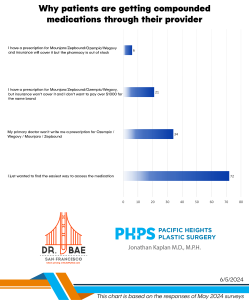I write articles for my blog about three times a week and luckily, so far, I always find inspiration from a patient I’ve met or an article I’ve read. And this morning was no different. I was reading through my email and came across an e-newsletter that contained various articles related to my field – cosmetic surgery and plastic surgery.
There are many e-newsletters circulating that are trade-oriented. For example, Smartbriefs is a company that compiles articles related to various industries such as architecture and medicine from traditional (eg New York Times) or less traditional media (eg Huffington Post) and sends out these articles in an eblast twice a week. Multibriefs is a similar trade-related e-newsletter. I’ve submitted articles to Multibriefs in the past – some they publish, some they don’t – depending on the quality of my writing in that particular submission. However, what I’m noticing more and more is that some trade-related e-newsletters, Smartbriefs in this instance, are less concerned about the content they’re republishing. I’m ironically proud that Multibriefs doesn’t always publish my work. It can’t all be good! That level of editorial review can’t be said for all e-newsletter providers.
You see, the hope of the trade-related e-newsletter is to provide a link to an article that consumers will click on. The more clicks to the company sending out the e-newsletter (Smartbriefs, Multibriefs), the better their ranking within Google searches. And the more clicks to the article itself improves Google rankings for the media source of the article. So when I was reading this Smartbriefs’ e-newsletter this morning, one of the included articles, “Self-image motivates men to seek plastic surgery”, gave me inspiration! This article, found in Men’s Journal, provided no new information, no useful patient testimonials from men and why they are choosing plastic surgery now and most glaringly, there were grammatical mistakes in the first sentence.
What this shows me is that quality content has taken a back seat to catchy titles, like men seeking plastic surgery or “Zookeepers Performing Cosmetic Surgery on Zoo Animals” to improve clicks and thus, Google search rankings. In fact, if you’re reading this article on another website, it probably means that the content editors of that site published it because 1) they agree with the literary statement I’m making or 2) they liked the title of the article and assumed it would garner extra clicks from people interested in cosmetic surgery! All of these clicks lead to posts on Facebook and retweets on Twitter so it’s not hard to see how the right title, regardless of content, can make an article and the website that’s publishing it, go viral in the public consciousness.
To promote better content, Google is trying to reward sites that provide good, original content and penalize those that do not with their recent release of the Penguin search algorithm. Since Google is the most popular search engine, content providers would do well to improve content and if good content can’t be found in the media, shorten the e-newsletter with fewer stories that are high in quality. And by all means, if the content that I submit isn’t up to standard, please don’t publish it!
Click here for the original blog post written by Dr. Jonathan Kaplan for BuildMyBod.




